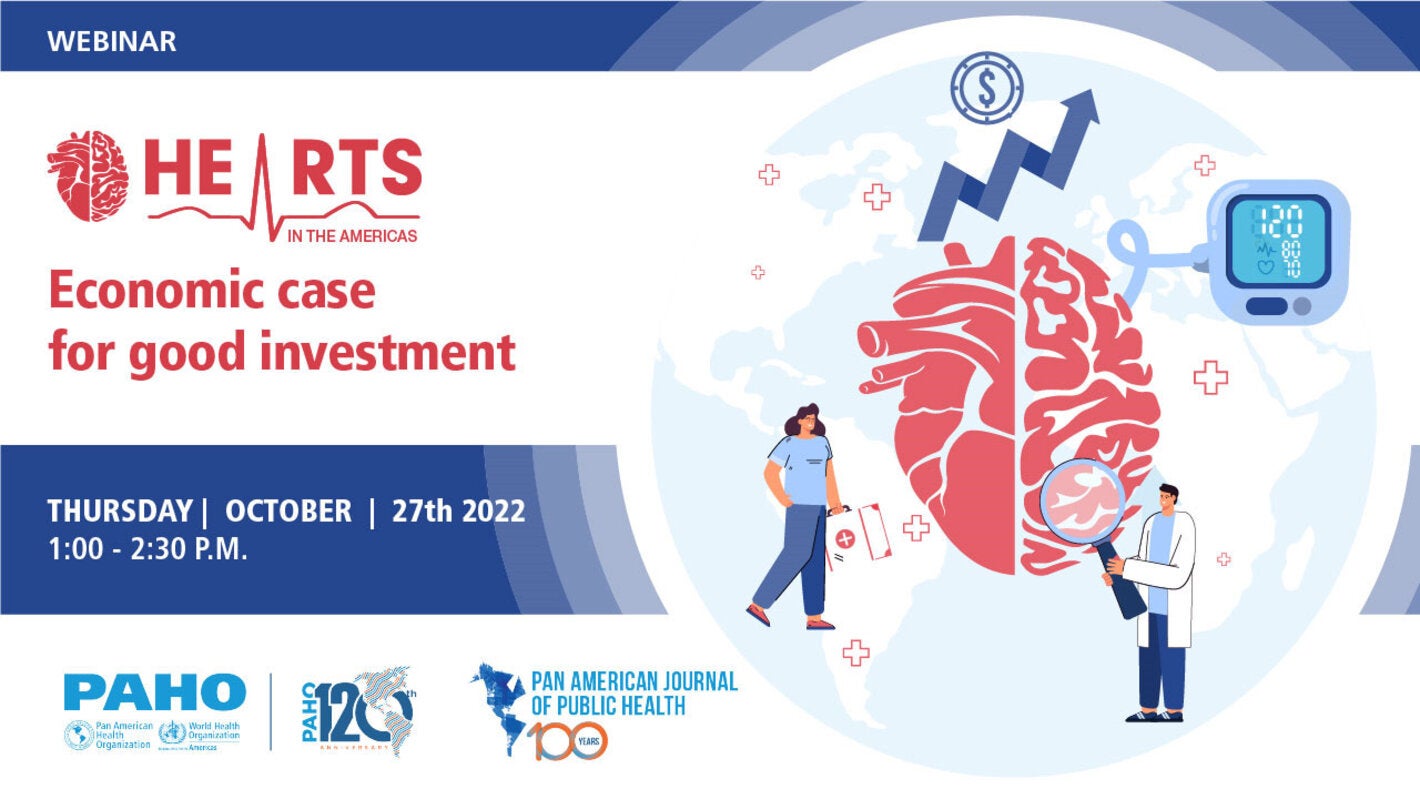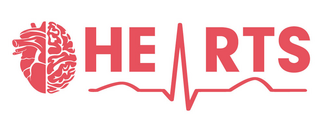
In observance of World Stroke Day 2022 - a global awareness day established by the World Stroke Organization, that takes place on October 29th every year, the Pan American Health Organization (PAHO), through the HEARTS in the Americas Initiative in collaboration with The Pan American Journal of Public Health, kindly invites you to attend the webinar on Thursday, October 27th, 2022. .
How to participate
- DATE: Thursday, 27 October 2022
- TIME: 1:00 - 2:30 p.m [EDT] [See below for local time in other cities]
- REGISTER: https://paho-org.zoom.us/webinar/register/WN_tJ-fYmrLRKy7V-BrhxzVvA
- LANGUAGE: Spanish, English and Portuguese with simultaneous interpretation in all languages.
- This webinar will issue a certification of attendance for the first 500 participants in the Zoom Room. Live transmission on YouTube channel will be available.
- LIVESTREAM:
- English: https://youtu.be/z9Y2OpDAXAA
- Spanish: https://youtu.be/g1GwkZAYh_M
- Portuguese: https://youtu.be/3ixEu3TXzD8
Recording
Audience
Primary health care teams, physicians, nurses, and pharmacists. Specialists in Family Medicine, Internal Medicine, Cardiology, Hypertension, Nephrology and Diabetes. Medicine, nursing and health science students. Health policymakers and managers, and health insurance organizations.
Background
Stroke is one the leading cause of death in the Americas, and suboptimal blood pressure (BP) control is the most important population-attributable risk factor (PAF) for stroke, including hemorrhagic (PAF=58%) and ischemic (50%) stroke. Over a quarter of adult women and four in ten adult men in the Americas have hypertension. Unfortunately, the diagnosis, treatment, and control are suboptimal. In region of the Americas, with a total population of 1,031,377,044 inhabitants, where programmatic interventions can change the prevalence of population hypertension control from the current level of 36.4% to a target of 50.4% in 5 years, it is expected that a total of 118,863 deaths from stroke deaths could be averted. https://www.paho.org/en/enlace/tool-estimate-impact-population-hyperten…
HEARTS in the Americas is the Pan American Health Organization’s flagship initiative for hypertension control and secondary CVD prevention. It is currently being implemented in 2095 centers in 24 countries and has been demonstrated to be either cost-saving or cost-effective. Accordingly, countries implementing hypertension control programs may reduce the burden of cardiovascular disease.
The Pan American Journal of Public Health (PAJPH) celebrates its 100th anniversary. The PAJPH has published a special issue dedicated to the HEARTS in the Americas Initiative that shows relevant research efforts in this Region on the implementation and early results of the full-scale model to improve hypertension control and CVD prevention.
This second webinar, in observance of World Stroke Day 2022, aims to highlight the crucial economic characteristic of implementing the HEARTS program, being a compelling case for government ownership and financial support for hypertension control programs.
Agenda
Moderator:
- Dr. Pedro Ordunez, Advisor. HEARTS in the Americas Initiative. PAHO/WHO.
Opening: Dr. Damian Vazquez. Managing Editor. Pan American Journal of Public Health (PAJPH). PAHO/WHO. HEARTS in the Americas. A Special Issue of the PAJPH. What's the news?
First segment:
- Dr. Andrew Moran. Director, Global Hypertension Control. Resolve to Save Lives. Health-economic case for HEARTS implementation
- Panelists:
- Costs of HEARTS program in Mexico - Econ. Deliana Kostova. Office on Global Noncommunicable Diseases. Center for Disease Control and Prevention (CDC). Atlanta, USA.
- Access to medicines and technologies - Dr. Nora Girón. Regional Advisor. The Strategic Fund. PAHO/WHO
Second segment:
- Dr. Norm Campbell. Jefe, Professor Emeritus. University of Calgary, Canada. Hypertension control in Canada.
- Panelists:
- HEARTS in Saint Lucia - Dr. Patrice Lawrence-Williams. Advisor. Non-Communicable Disease and Mental Health, PAHO/WHO. - Dr. Shana M Cyr-Philbert. Senior Medical Officer. Ministry of Health and Wellness.
- HEARTS in Trinidad and Tobago - Dr. Rohit Doon. Public Health Medical Advisor. Ministry of Social Development and Family Services. Trinidad and Tobago
Closing Remarks
- Dr. Sheila Martins, President-elect. World Stroke Organization.
Time correspondence
- 10:00 am.– Los Angeles
- 11:00 am. – Belmopan, Calgary, Guatemala City, Managua, San Jose (CR), San Salvador, Tegucigalpa
- 12:00 pm. – Bogota, Mexico City, Panamá City, Kingston, Lima, Quito
- 1:00 pm. – Bridgetown, Caracas, Castries, Georgetown, Havana, La Paz, Nassau, Ottawa, Port-au-Prince, Port of Spain, San Juan, Santo Domingo, Washington DC
- 2:00 pm - Asunción, Buenos Aires, Brasilia, Santiago, Montevideo, Paramaribo
- 7:00 pm. – Geneva, Madrid
For other cities, check the time in the following link
Resources
The special issue of the Pan American Journal of Public Health
- Moran A. et al. Building the health-economic case for scaling up the WHO-HEARTS hypertension control package in low- and middle-income countries. Rev Panam Salud Publica. 2022; e46:1288
- Chivardi et al. Assessing costs of a hypertension program in primary care: evidence from the HEARTS program in Mexico. Rev Panam Salud Publica. 2022; e46: 144.
- Giron N. et al. Moving toward improved access to medicines and health technologies for cardiovascular disease. Rev Panam Salud Publica. 2022; e46:156.
- Campbell N. et al. Ups and downs of hypertension control in Canada: critical factors and lessons learned. Rev Panam Salud Publica. 2022; e46:141.
- Lawrence-Williams P. et al. Improving cardiovascular health in primary care in Saint Lucia through the HEARTS Initiative. Rev Panam Salud Publica. 2022; e46:128.
- Martinez R et al. Association between population hypertension control and ischemic heart disease and stroke mortality in 36 countries of the Americas, 1990-2019: an ecological study. Rev Panam Salud Publica. 2022;46: e143.
- Ordunez P et al. HEARTS in the Americas: innovations for improving hypertension and cardiovascular disease risk management in primary care. Rev Panam Salud Publica. 2022;46: e96.


